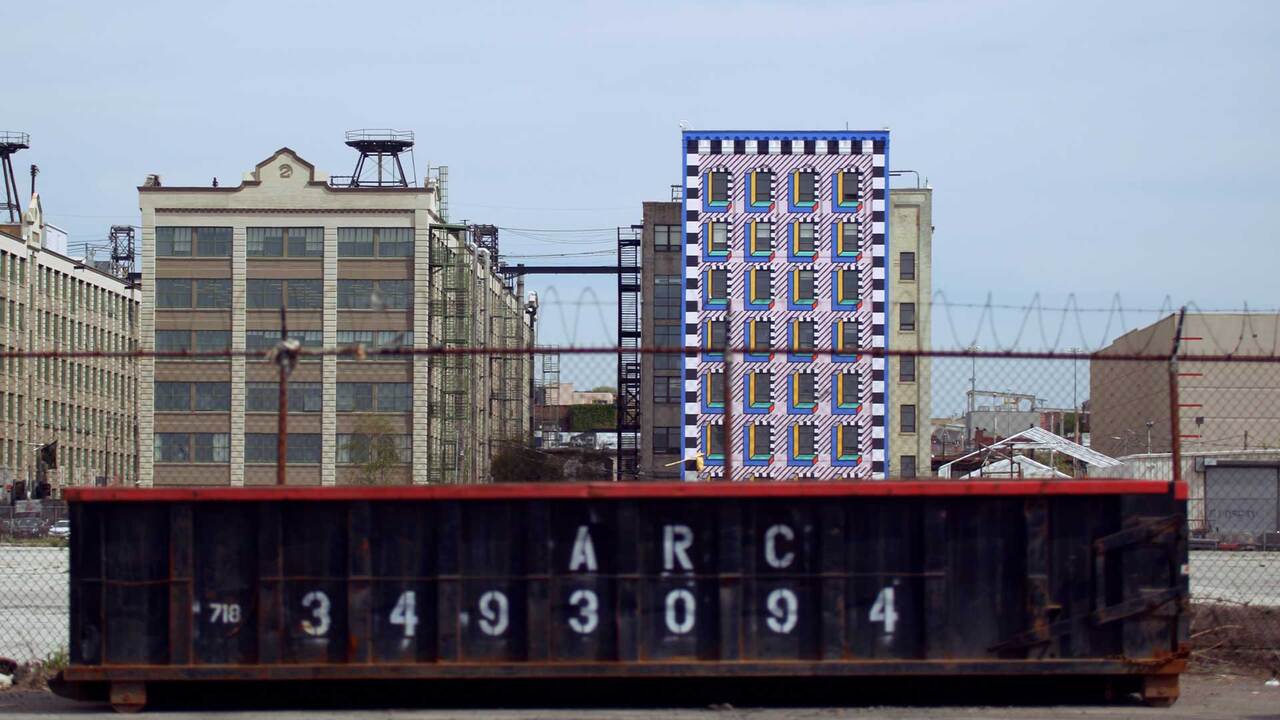For generations, the waterfront of Sunset Park in Brooklyn has been the lifeblood of a thriving industrial hub, providing jobs and opportunities for the area’s working-class, primarily the immigrant population. However, as industry declined in the latter half of the 20th century, so too did the vibrancy of this once-bustling shoreline.
Now, faced with the twin threats of rising sea levels and aggressive private development, the very fabric of Sunset Park is at risk. A group of global developers jumped at the opportunity to buy it up with big ideas for the future. Eyeing the potential for profit, they have begun efforts to transform Industry City into a symbol of modern urban renewal. Yet, this transformation raises a pressing question: Can the soul of this diverse, tight-knit community survive amid such sweeping changes?
Directed by Sunset Park community members Kelly Anderson and Jay Arthur Sterrenberg, “Emergent City” is a compelling narrative that focuses on the tireless endeavors of community leaders to preserve the very heart of their home, especially in the face of capitalistic individuals. More importantly, the documentary film serves not as an outlier, but an encapsulation of an era where the housing crisis threatens many metropolitan cities across the United States.

Brooklyn, Sunset Park, Industry City – Up Close
“Emergent City” starts as both an experimental and historical documentary, giving the audiences a look into the everyday lives of Brooklyn. These scenes are intercut with archival footage of the borough, with a voiceover remarking that with 2.4 million residents, Brooklyn would be the fourth largest city in the US had it been one.
Sunset Park is a neighborhood in the western part of Brooklyn, which is known for its multicultural population. This multicultural mix defines the neighborhood’s identity and has contributed to its vibrant community life, with diverse cultural institutions, businesses, and social networks. These demographics are important to consider when discussing development and its potential impacts on the community. On the neighborhood’s waterfront lies Industry City, a 16-building, 35-acre complex formerly dedicated to heavy manufacturing. Since its decline, Industry City has been transformed into a mixed-use hub encompassing retail, offices, storage, and restaurants.
The film shows a consortium composed of Belvedere Capital Real Estate Partners, Jamestown Properties, and Angelo, Gordon & Co. purchasing Industry City in 2013. With their acquisition of the complex, they would have control of Industry City. Seeking to maximize the potential of the site, the new owners proposed modifications to use, bulk, parking, and public access requirements. Their vision encompasses new development efforts that include building luxury hotels, a high school, office space, and extensive retail options, creating a vibrant and diverse destination for residents and visitors alike.
[More Tribeca Coverage: ‘Group Therapy’: Exploring the Intersection of Comedy and Mental Health]
Big Plans, More Jobs — in Favor of Displacement and Gentrification
This takeover poses a challenge to the neighborhood. The planned redevelopment efforts would start a chain of events that would result in the displacement of its inhabitants. The documentary tries to juggle different perspectives: those of the residents, the economic developers, and those championing for sustainable development. Primarily, concerns about gentrification come front and center. With its multicultural population, Industry City risks accelerating the displacement of these communities. Rising property values and rents could displace low-income families and small businesses that have been part of the neighborhood for generations.
Another issue involves the lack of inclusion. “Emergent City” highlights how critical it is to educate many residents to be in the know of the decision-making process. The film thus sheds light on the frontlines of the advocacy for the residents that would be displaced due to gentrification. Uprose, Brooklyn’s oldest Latino community-based organization, encourages all community members to use their voices to speak of and against the type of development that occurs in the neighborhood.
On the other hand, city officials contend that the redevelopment of Industry City can provide major opportunities for economic revitalization. The project promises to create jobs, attract investment, and increase tax revenues, which can be used to fund public services and infrastructure improvements. Moreover, the rezoning necessary would need approval from appropriate zoning laws, environmental regulations, and affordable housing requirements.
‘Emergent City’: An (Oftentimes) Objective Take on Contemporary Urban Development
It’s interesting that the filmmakers titled the documentary that way; considering how the concept of an emergent city describes urban areas that develop organically over time through complex interactions among various elements such as people, infrastructure, and policy. And like one, Industry City flourished and evolved from the dynamic and adaptive behaviors of its multicultural inhabitants, the majority of which belonging to Latino and Asian communities.
The film becomes a study on how to objectively present multiple perspectives, while still having an agenda of your own. And for good reason: after all, what everyone wants are sustainable and inclusive development strategies. People want plans that won’t displace the community’s working class, primarily immigrant residents, many of whom could face displacement once the development changes the entire space.
As Sunset Park stands at the brink of transformation, its future continues to hang in the balance between progress and preservation. “Emergent City” documents not just a local issue, but a reflection of the broader urban struggle between development and displacement, economic growth, and cultural retention.
And by listening to the diverse voices of those who have long called this place home and working toward inclusive, sustainable solutions, “Emergent City” works because of how timely it is. Even so, while the efforts of these advocates and tireless individuals succeeded in making Jamestown Properties rethink their rezoning strategies, both Kelly Anderson and Jay Arthur Sterrenberg hammer the point that, for the big win the community achieved, the work has just begun.